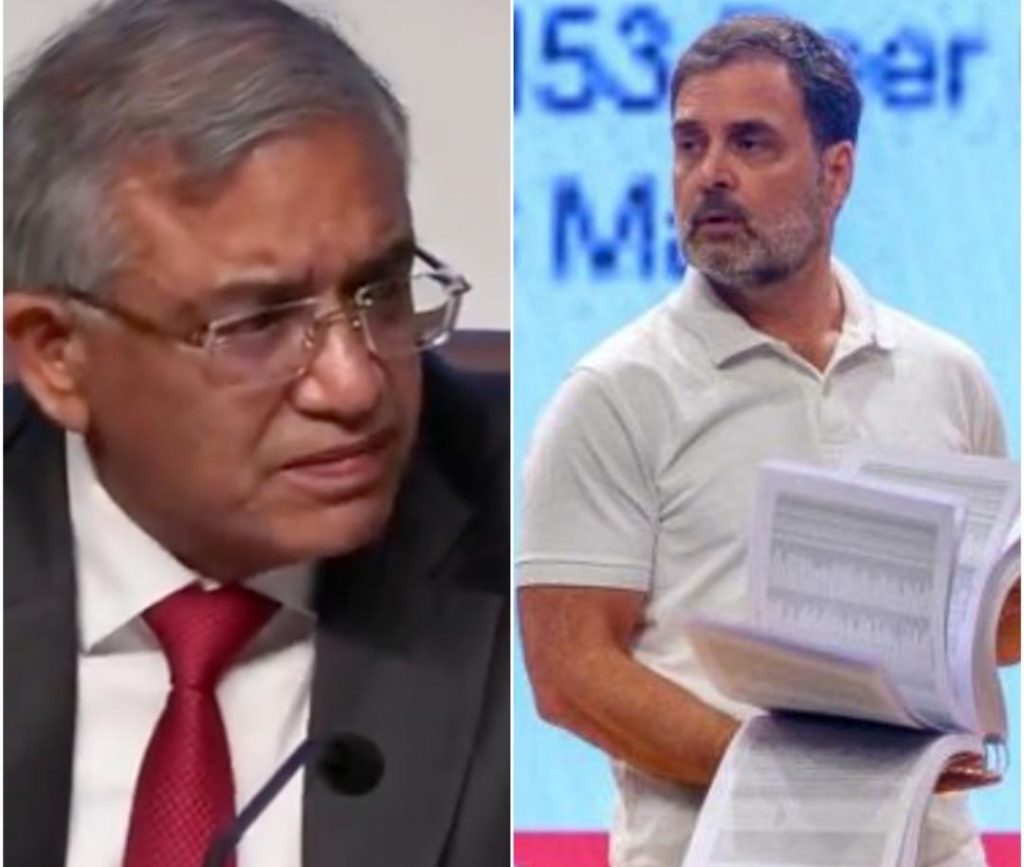
Title: “Vote Chori” Phrase an Insult; Should We Share CCTV Footage of Mothers & Sisters Voting?: EC
The Indian general elections have been marred by controversies and heated debates, with political leaders using various tactics to discredit their opponents. One such phrase that has gained attention recently is “vote chori” or “vote theft,” which has been used by Congress leader Rahul Gandhi to claim that the elections are rigged. However, Chief Election Commissioner (CEC) Gyanesh Kumar has criticized the term, calling it an insult to the Constitution.
Gyanesh Kumar stated that the term “vote chori” is an insult to the Constitution and the democratic process. He emphasized that the Election Commission is committed to ensuring free and fair elections, and any allegations of rigging or fraud will be thoroughly investigated.
However, the real controversy began when some people demanded that the Election Commission release CCTV footage from polling booths to “expose” rigging. In response, CEC Gyanesh Kumar posed a question that has left many people wondering: “Should the Election Commission share the CCTV videos of any voter, including their mothers, daughters-in-law?”
This question highlights the concerns surrounding voter privacy and the potential misuse of personal information. The Election Commission has been collecting CCTV footage from polling booths to monitor the electoral process and prevent any irregularities. While this measure is intended to ensure the integrity of the elections, releasing the footage could compromise the privacy of voters.
The demand for releasing CCTV footage is largely driven by political motives, with some parties trying to discredit their opponents by claiming that the elections are rigged. However, this approach is not only unfair but also undermines the democratic process. It is essential to recognize that the elections are a complex process, and any allegations of rigging or fraud should be based on concrete evidence rather than speculation or hearsay.
Moreover, releasing CCTV footage could have serious consequences for voters, particularly women and marginalized communities. The footage could be misused to target individual voters or to intimidate them into not casting their votes. This could have a significant impact on the electoral process, as voters may feel reluctant to exercise their democratic right.
The Election Commission has taken several measures to ensure the integrity of the elections, including the use of VVPATs (Voter-Verified Paper Audit Trail) and EVMs (Electronic Voting Machines). Additionally, voters can verify their votes through the VVPAT system, which ensures that their votes are recorded correctly.
In conclusion, the “vote chori” phrase and the demand for releasing CCTV footage are both misguided and unfair. The Election Commission has taken necessary measures to ensure the integrity of the elections, and any allegations of rigging or fraud should be based on concrete evidence rather than speculation or hearsay. It is essential to respect the democratic process and to recognize the importance of voter privacy.
As the Indian general elections continue, it is crucial that political leaders and citizens alike focus on promoting a free and fair electoral process. The “vote chori” phrase and the demand for releasing CCTV footage are distractions that can undermine the democratic process and compromise voter privacy. Instead, we should focus on promoting transparency, accountability, and respect for the democratic process.






